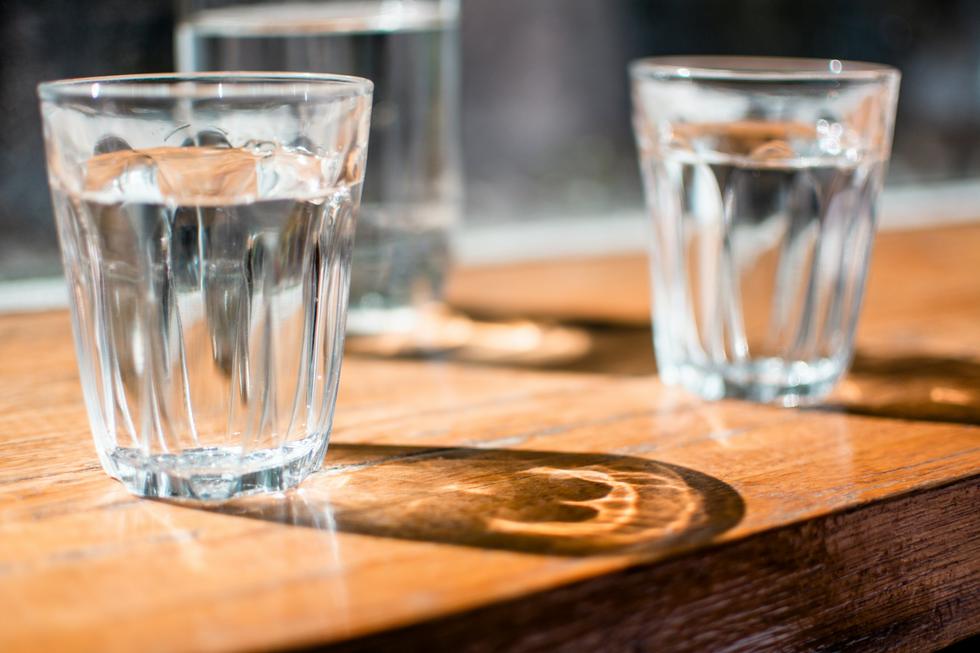Quick version
The body's functions are affected by how much water we drink each day, so it's important to ensure adequate intake. Functions that are affected range from regulating temperature and supporting digestion to improving concentration and skin health.
The recommendation is around 2–2.5 liters of fluid per day, including what we get through food. The need varies with physical activity, temperature and health status.
Tap water in Sweden is a safe and natural source of important minerals such as calcium and magnesium. Listen to your body's signals such as thirst and the color of your urine, and use simple tricks to remember to drink regularly.
Why does the body need water?
Water makes up about 60% of an adult's body weight and plays a central role in almost all of the body's functions. Adequate water intake helps to:
- Provide oxygen and nutrients to cells
- Regulate body temperature
- Lubricate joints
- Digestion and nutrient absorption function properly
- Waste products are excreted via urine and sweat
How much water should you drink per day?
Since the need varies depending on everything from age, gender, body size and whether you are extremely or normally active with training and exercise, as well as the climate, there is no exact amount that suits everyone. An often-quoted recommendation comes from the European Food Safety Authority (EFSA):
- For women, it is recommended: about 2 liters (8 glasses) per day from all sources
- For men, it is recommended: about 2.5 liters (10 glasses) per day from all sources
By all sources we mean both food and drink. About 20–30% of our fluid intake comes from the food we eat (fruit, vegetables, etc.), the rest from drinks – mainly water.
Adjust your intake to your needs – and your thirst
The need increases during everything from physical activity to hot weather or if you are sick and have a fever or diarrhea, for example. It is important that you listen to your thirst – it is often a good guide. Your urine color can also give a good indication - if the color is light yellow, it indicates that you have a good fluid balance.
5 health benefits of drinking enough water
Being well-hydrated has several positive health benefits for both digestion and skin:
- Better concentration and energy - A study published in Nutrition Reviews (Popkin et al., 2010) shows that even mild dehydration - as little as 1-2% fluid loss - can impair both concentration, mood and short-term memory.
- Healthy digestion - Adequate fluid intake prevents constipation and helps the digestive system function properly.
- Supports Kidneys and Detoxification – Water helps your kidneys filter out unnecessary waste products effectively. It is important to drink enough to reduce the risk of kidney stones.
- Regulates body temperature – Your body temperature is regulated when you sweat – this is something that requires you to be well hydrated.
- Healthier skin – Drinking enough can also give your skin more luster and reduce the risk of dryness.
What substances do you naturally get through water?
Tap water in Sweden naturally contains several important minerals for the body, these are:
- Calcium which is important for bones and teeth.
- Magnesium which is needed for muscles and nerves.
- Sodium which helps regulate fluid balance.
- Fluoride which protects teeth against caries (found in varying amounts depending on the area).
- Potassium which is important for heart and muscle function.
The amount of minerals in tap water varies depending on where you live. Generally, Swedish tap water is of high quality and contains these substances at safe levels according to the Swedish Food Agency.
How to get enough water every day – 7 practical tips
- Always have a water bottle on hand – convenient whether you are at home, at work or on the go.
- Drink a glass before every meal – make it a routine and it will be easier to remember.
- Flavor the water with, for example, lemon, cucumber or berries if you find plain water boring.
- Eat more fruit and vegetables, e.g. cucumber or melon, which contain a lot of fluid.
- Set reminders on your phone if you are one of those who often forget to drink.
- Pay attention to thirst signals, this is especially important when exercising or in hot weather.
- Watch your urine - a light yellow color is a sign of good hydration.
Summary
Drinking enough water every day is crucial for both physical and mental health. Adjust the amount to your needs, listen to your body and choose Swedish tap water for a natural source of important minerals.


























